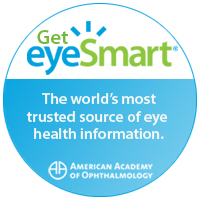General Ophthalmology consists of all aspects of eye care, including medical and surgical, and most recently, nutritional subjects. General Ophthalmology also covers all aspects of eye power corrections including laser surgery, contact lenses and eyeglasses.
An ophthalmologist is that Eye Care Specialist who was first trained in all aspects of medicine. He/she gained an M.D. (Doctor of Medicine) degree and then chose to continue on in education as a resident in ophthalmology for either three or four years. He/she was then trained to practice in general ophthalmology.
The patient population eligible for the general ophthalmologist’s care covers the entire age spectrum from premature infant to elderly senior citizen.
Early detection of vision problems can mean the all the difference in the world – the sighted world versus the world of darkness. Recommendations for comprehensive eye examinations are as follows:
Newborns should have their eyes checked by the pediatrician before leaving the hospital.
Ages 5 – 60: at 1 – 2 year intervals unless symptomatic.
Ages over 60: annually, even if not symptomatic. Intervals can be much shorter in diseases such as glaucoma, diabetic retinopathy or acute infections, or if any symptoms exist.
Our Ophthalmologists can treat a wide range of vision problems such as Glaucoma, Dry Eye Syndrome, Diabetic Retinopathy, Conjunctivitis, Age-Related Macular Degeneration, Stye and Chalazions, Corneal Abrasions, Flashes/Floaters, Low Vision and a variety of other eye conditions.
Please visit our Patient Resources page to learn more about these eye conditions.


